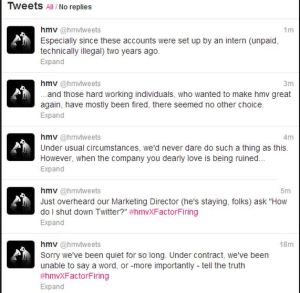The end of university is quickly approaching and like every other student, the job search is already under way. The most overlooked part, in my opinion is negotiating the job offer. All too often people accept a job offer without really thinking it through and sometimes isn’t your best alternative to a negotiated agreement (BATNA). I know this from experience when applying for part time work.

Image from http://careeraviators.wordpress.com/
There may be scenarios where an employer can make concessions to an offer. If you take a risk and try and negotiate, it shows that you are more than just a ‘wall flower’.
1. Work out what you want
Create a list of needs and wants. What salary package will cover your living costs but what else might you want with this job role? Eg, holiday or travel costs covered
2. Do your homework
After evaluating your needs and wants, it’s important to research the company, what is the progression within the company like, is there opportunities for promotion?
3. Determine your BATNA and aspirations
Is there a figure in mind that you would like as your salary? Set a minimum and maximum figure as a target. Once you know your outgoing expenses, this can determine how low you are willing to go, without having to give something up. If there is another job you have applied for, how does it compare? Top tip is to always keep your BATNA a secret!
The perfect job is difficult to find within this current economic climate and the situation may arise where many people are fighting for the internship, graduate scheme or job role at an organisation. This to me resembles The Apprentice, where everyone is competing for the same job – to be Alan Sugar’s apprentice. It is important to have a strong rationale as to why they should choose you and back it up with evidence.
So once you hear those magic words ‘you’re hired’ and you may or may not have managed to agree on a win-win situation which suits both parties, the time will come when you will have a performance review. This is where your list of wants and needs can be compared to those of your employer. According to Harvard Business School (2009), a performance appraisal is based upon employees’ on-the-job-performance and their goals. Although a daunting situation, this is the perfect opportunity to showcase yourself and strive for that promotion or salary that you have always wanted.
Although this sounds easy, it’s all too common to accept the first job offered to you without thinking it through. I am personally very eager to being my career in PR, but first and foremost I wish to have a job which I am happy to get up for every morning. If the job negotiation doesn’t go to plan, there’s always the performance review!
What is your experience of negotiation? Are you too quick to say yes to a job?






